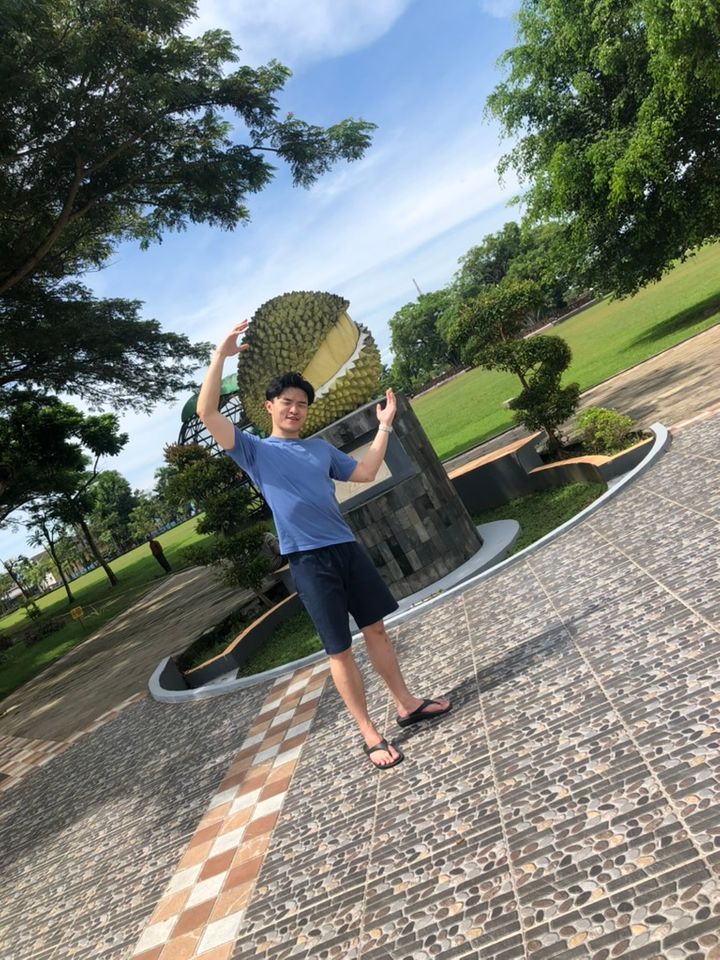Key Information
Year of Project: 23-24
Number of student partners: 4
Number of staff partners: 3
Length of project: 8 weeks during summer vacation
Weekly time commitment: 35 hours per week
Staff partners: Dr Tiffany Chiu, Kieron Creagh, and Ayo Oluyemi
Project area: Educational Research and curriculum development
Student partners: Claire Shyle (Life Sciences, first year), Mariam Ahmad (Brain Sciences, masters), Shawn Huang (Materials, third year), Stephanie Cui (Chemical Engineering, first year)
Success Guide Chatbot student partners
Project Initiative
This summer, we had the exciting opportunity to support the academic journey of Imperial students by developing a Generative Artificial Intelligence (GenAI) chatbot based on the Imperial Success Guide – a collection of academic tips and resources. This initiative was supported by student focus group insights, which highlighted that while students valued the Success Guide's information, many were either unaware of its existence or found it difficult to navigate.
The chatbot, which we named IMPY, aims to diversify how information can be communicated to students. We hope IMPY will be an accessible tool for students across Imperial and a starting point to promote responsible GenAI use. To support students’ diverse needs, we conducted focus groups with participants across various degrees and year groups. Student insights from these focus groups, along with our literature review of GenAI applications in Higher Education, shaped the design and features of the chatbot. These findings also guided the development of a user handbook aimed at educating students about the chatbot and encouraging its responsible and ethical use.
We hope that through this project, we can support students’ transition to Imperial by transforming the Success Guide into an interactive chatbot that will make information and resources more readily available and easier to navigate.
Prototype Development
We started the project with limited technical knowledge as prototype development was outside the project’s scope. However, motivated by our enthusiasm to create a more personalised chatbot, we took the initiative to develop a prototype. Our shared passion for IMPY drove the team to overcome technical barriers and inspired staff to support our prototype.
Prototype development involved both back-end and front-end programming, which provided us the opportunity to enhance our technical proficiency in GenAI and software engineering. During this process, we relied on each other to understand various technical aspects and tackled challenges collectively.
This technical insight enabled us to improve the chatbot’s ability to support students. For instance, we worked on prompt engineering to ensure the chatbot could provide relevant and helpful responses within its scope. We were challenged to critically decide on features that would enhance user experience but adhere to ethical guidelines of AI in education.
Our development process was iterative, involving continuous testing and refinement by both students and staff. We presented our work to various departments within Imperial, including the Centre for Academic English, Student Services, Library Services, the ICT department, and our StudentShapers staff partners. These experiences enhanced our project management skills and appreciation for diverse perspectives. We learned to negotiate ideas while respecting the varied expertise of staff across departments, gaining valuable insights into effective stakeholder communication and management.
Collaborating with a diverse team of students and staff made this project truly unique. We were impressed by how staff engaged with us as colleagues, valuing our contributions and creating an environment where we felt comfortable sharing ideas and taking initiative. This experience taught us to balance ambitious ideas with practical constraints, particularly when it comes to technical and implementation aspects.
Chatbot User Guide Development
Our discussions with staff highlighted the importance of ethical and privacy guidelines in AI. We recognised our role in protecting students and raising awareness about the digital footprint left by GenAI tools, especially considering the varying levels of experience with GenAI observed in our focus groups.
In response, we developed two versions of a user guide for IMPY: a detailed web version and a concise, visual printed handbook. These guides aim to promote effective and ethical use of IMPY, emphasising its limitations and potential for inaccuracies beyond its scope. Creating these guides deepened our understanding of GenAI and sharpened our skills in communicating complex ideas clearly and concisely. It also gave us insight into purposeful visual communication, as we had to align with the College’s new branding while creating a friendly mascot for the chatbot. Our hope is that with the guide and IMPY, students can enhance their AI literacy, promoting equitable access to this technology.
Skills Development
This StudentShapers project provided each of us the opportunity to develop a wide range of skills that go beyond our degrees. We were exposed to many new experiences that ultimately helped us become better communicators and developers.
I thought this was an incredible opportunity where everybody’s motivations were so perfectly aligned. I am really proud of what we achieved, as student and staff hand in hand!”
Desktop research into GenAI applications introduced us to the nuances of educational literature. We improved our ability to critically evaluate educational literature and synthesise key findings. Leading focus groups further developed our coordination and receptiveness. Both tasks highlighted the importance of evidence-based approaches in supporting our initiative and refining our outputs.
On the technical side, learning to code involved perseverance and exposed us to new fields such as natural language processing and web development. Testing the chatbot and engineering prompts challenged us to assess user experience and AI ethics in education. Through iterative testing and peer feedback, we learned the importance of user-centred design and continuous improvement in software development.
The constructive feedback from meetings with diverse staff departments helped us in this journey of software development, while exposing us to varied problem-solving approaches and communication methods. We learned to leverage each other's strengths, navigate differing opinions, and support each other through challenges.
Reflecting on this experience, the skills we have gained – from technical to soft skills like adaptability and teamwork – will be invaluable in our future careers.
Student Staff Partnership
From the very beginning, staff partners fostered a welcoming environment by valuing our ideas and providing constructive feedback. However, beyond this, they shared our enthusiasm for IMPY and trusted our ability to take initiative. Our meetings became a balance of productive discussions and light-hearted moments, creating a sense of belonging and growth.
Through this project, we discovered the potential of student-staff partnerships when working together towards a common goal. Ultimately, we realised that our project’s success was not just measured by its technical accomplishments, but in the community we built along the way. We hope our journey encourages other students to actively engage in similar partnerships, recognising the mutual benefits of student-staff collaborations.
We are grateful for the trust placed in us by our staff partners and are excited for students to use our chatbot and handbook on the Success Guide's webpage in the 2024 Autumn Term!
Testimony
“I particularly enjoyed how staff partners treated us as colleagues rather than just students. They were always ready to offer guidance when needed, but also trusted us to take ownership of our tasks. This balance of support and autonomy allowed us to grow professionally while making meaningful contributions to the project. Staff partners’ willingness to consider our perspectives and engage in open dialogue fostered a truly collaborative atmosphere. This mutual respect led to more innovative solutions and a deeper understanding of the project’s objectives.”



